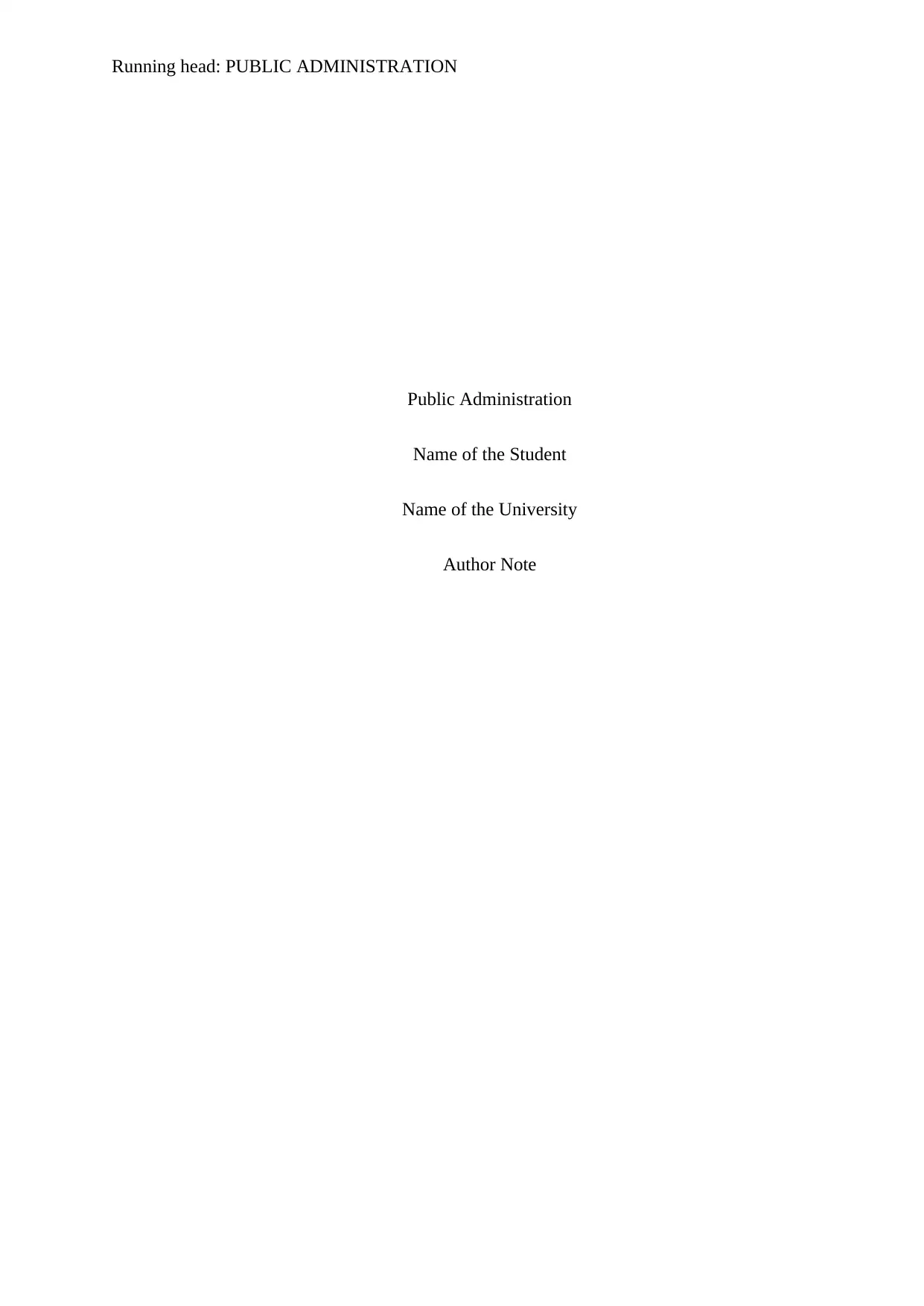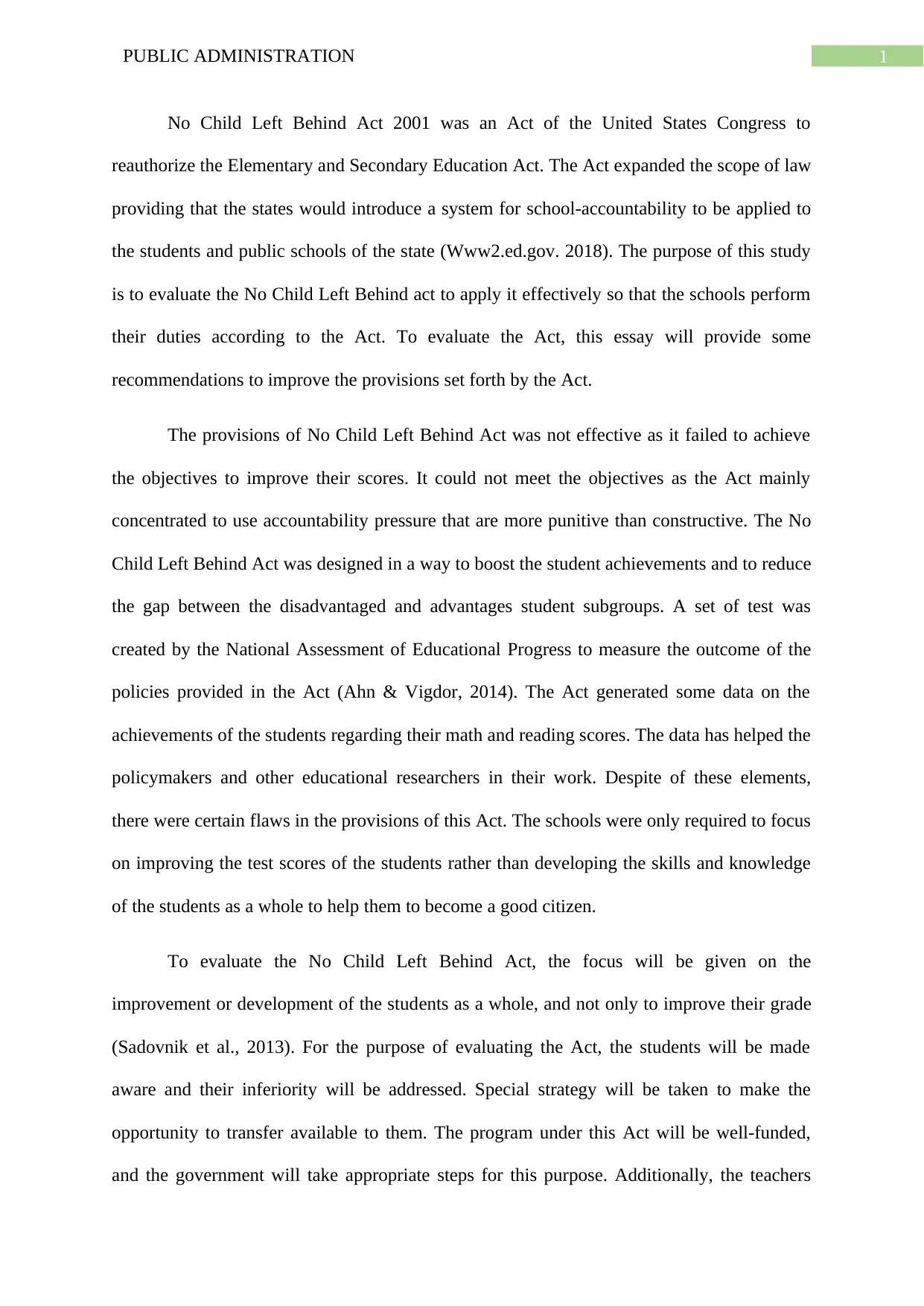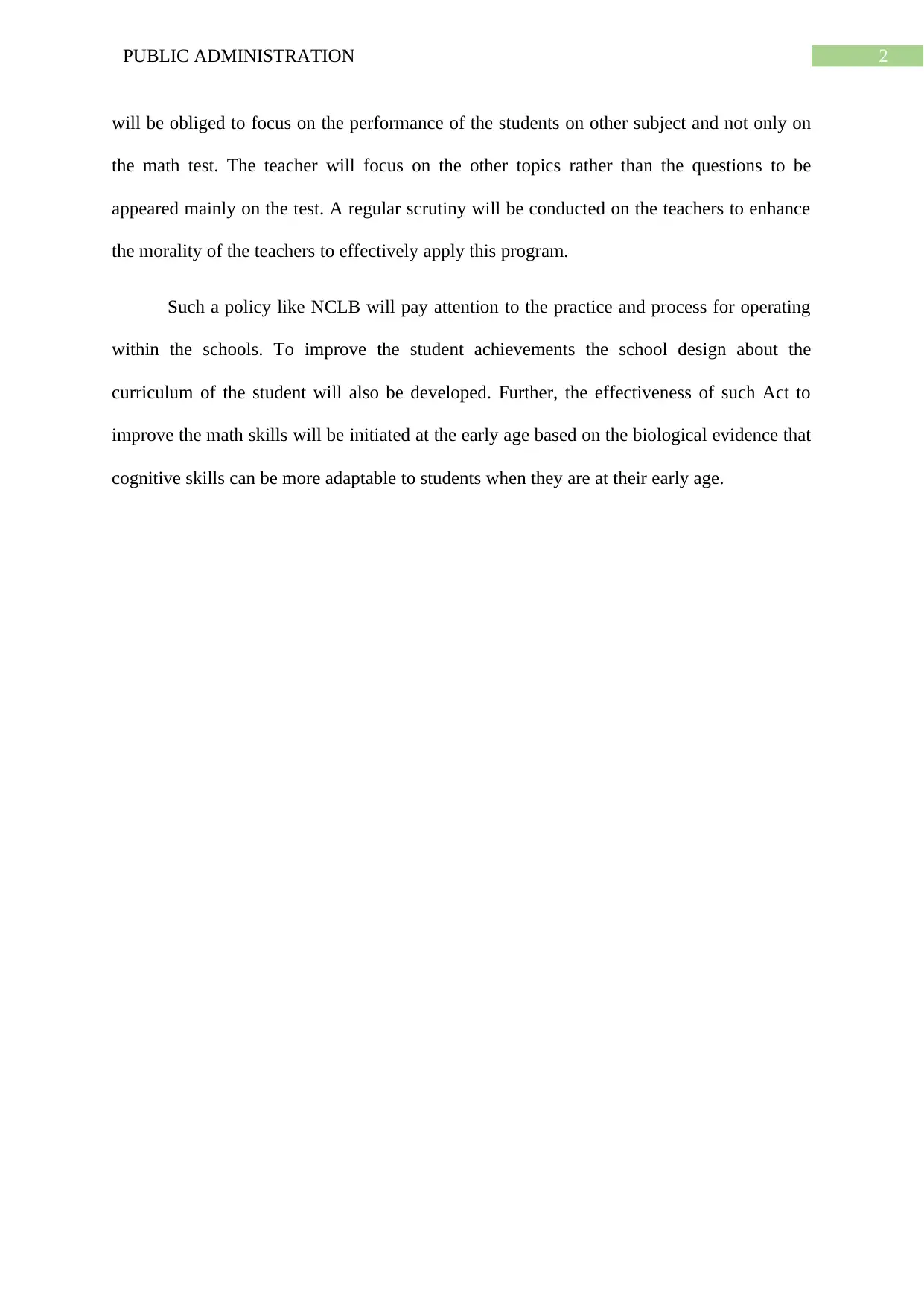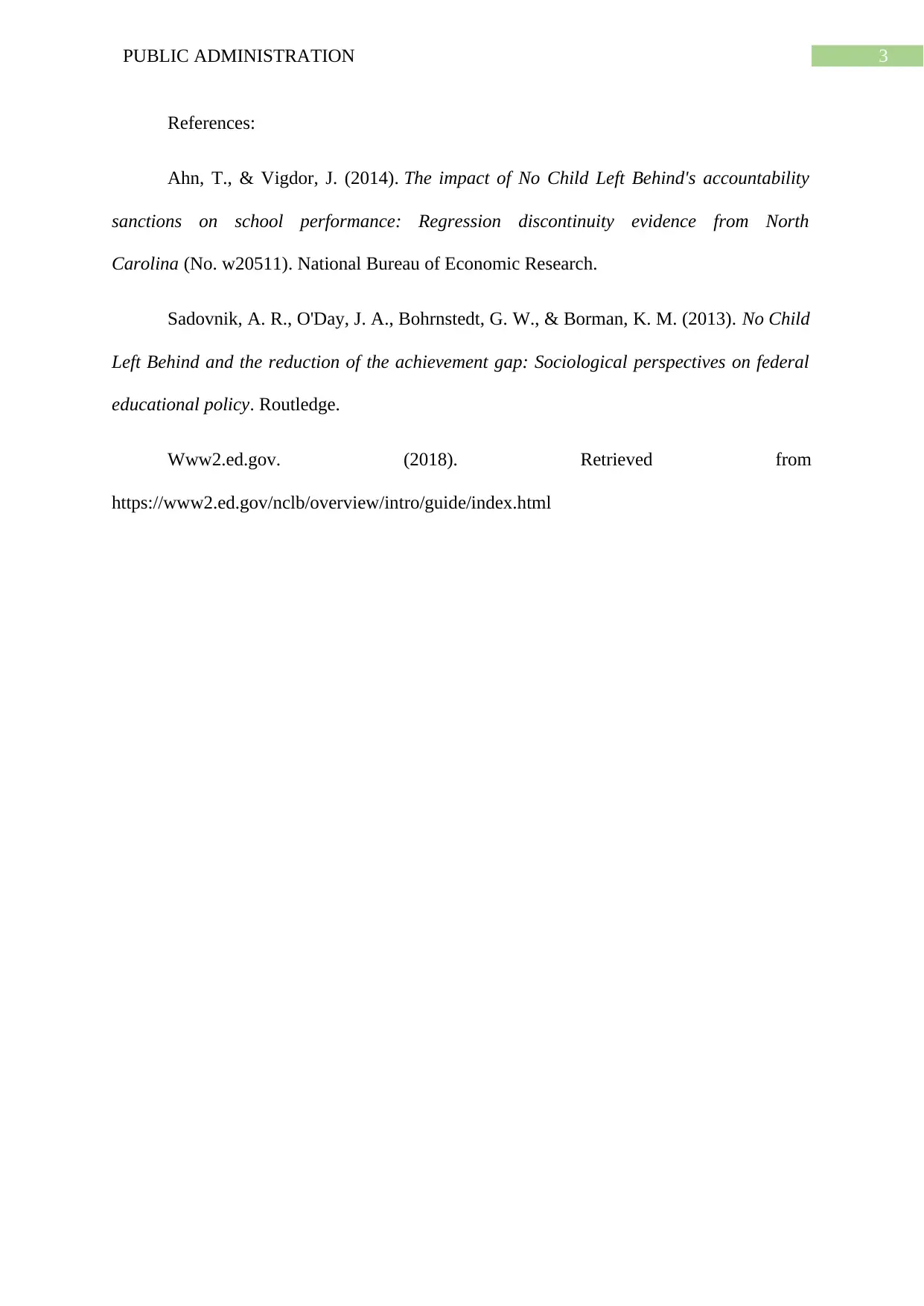An In-Depth Analysis of the No Child Left Behind Act and Its Impact
VerifiedAdded on 2021/09/17
|4
|671
|108
Essay
AI Summary
This essay analyzes the No Child Left Behind Act (NCLB), examining its impact on student achievement and educational reform. The essay begins by outlining the context of the Act, highlighting its goals of improving student performance and reducing achievement gaps. It then critically evaluates the Act's effectiveness, discussing its strengths and weaknesses. The author argues that NCLB's emphasis on standardized testing and accountability measures, while intended to improve student outcomes, may have inadvertently led to a narrow focus on test scores at the expense of broader educational goals. The essay suggests potential improvements to the Act, such as focusing on the holistic development of students, providing adequate funding, and supporting teachers. It concludes by emphasizing the need for a more nuanced approach to educational policy that considers the complexities of student learning and the importance of fostering well-rounded individuals. The essay is supported by references to relevant research and literature on the topic.
1 out of 4











![[object Object]](/_next/static/media/star-bottom.7253800d.svg)